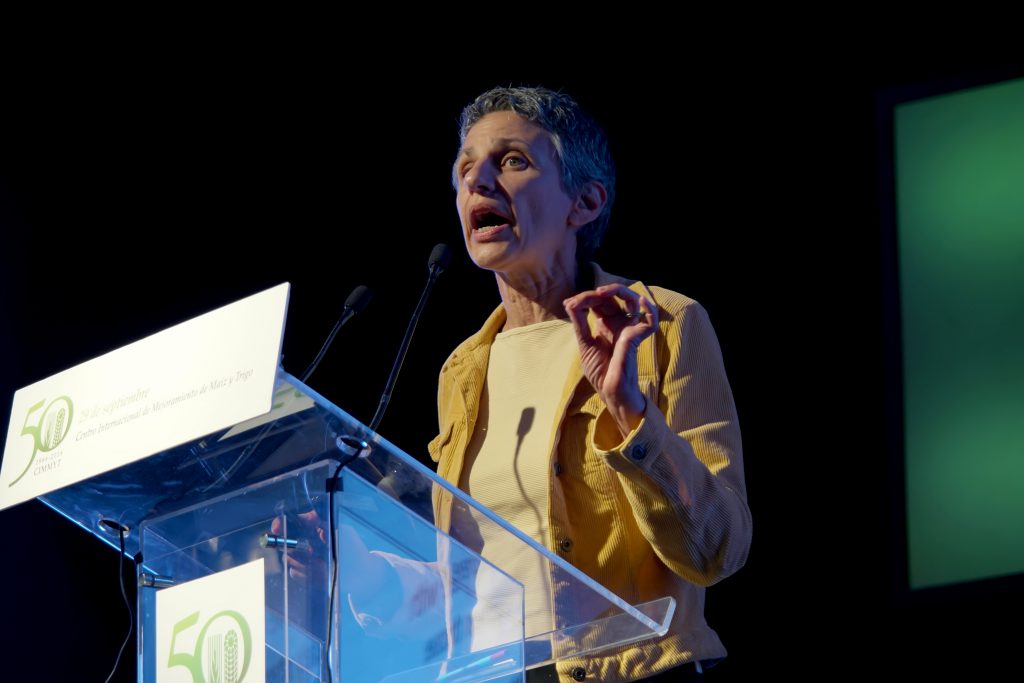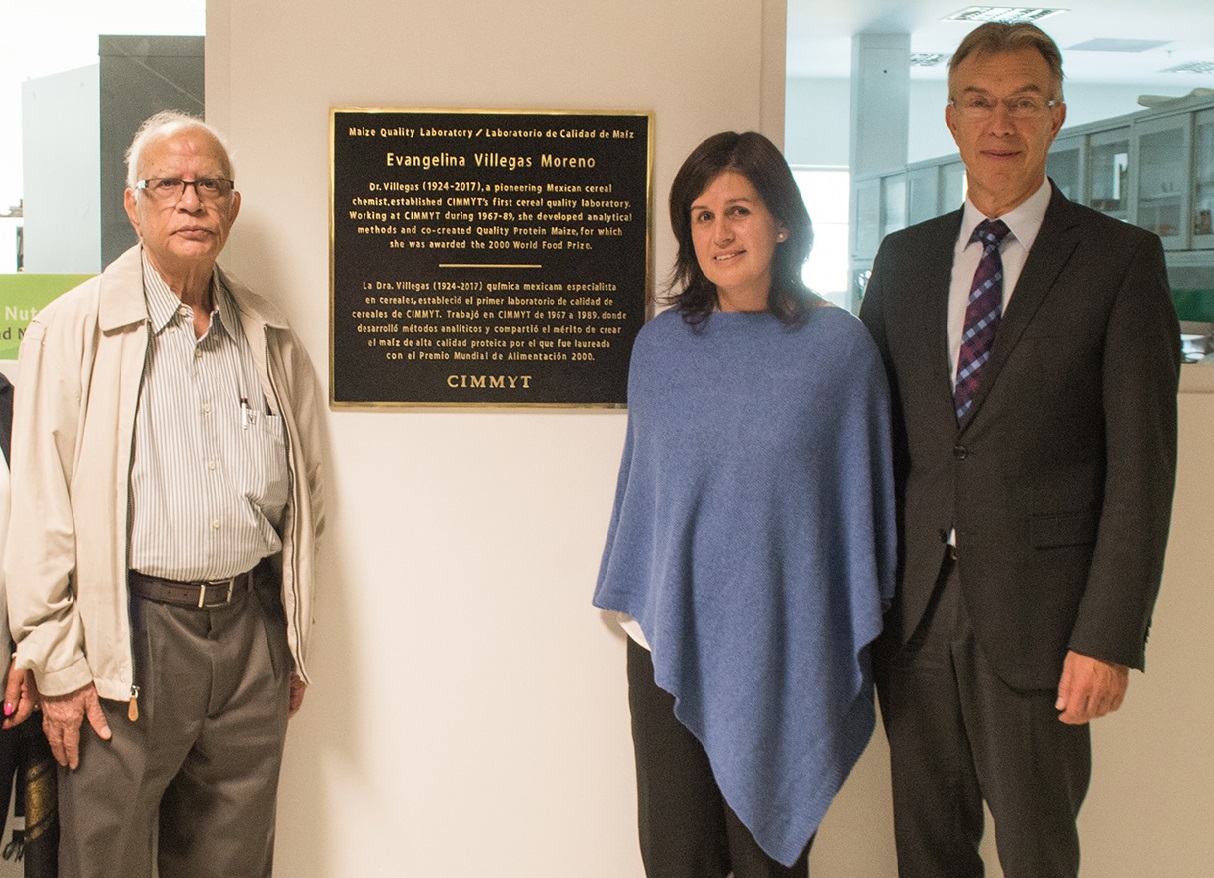MEXICO CITY (CIMMYT) — A few hands jabbed into the air. Tamar Haspel, a columnist for the Washington Post, had asked a room of more than 1,000 scientists, researchers, economists and agriculture experts a simple question: “Who here has changed their mind on an issue in the past year?”

Haspel, author of “Unearthed,” a column in the Washington Post newspaper that focuses thematically on the intersection between food and science, was delivering a keynote address at a three-day conference hosted by the International Maize and Wheat Improvement Center (CIMMYT) to celebrate the nonprofit’s 50th anniversary.
Haspel’s speech urged those in the science-agricultural industry to take a closer look at opinions unlike their own and to have constructive conversations in hopes to improve and change the current public conversation about agriculture.
Q: When did you first start writing about food, science and agriculture?
I’ve been writing about food for 20 years, really focusing on nutrition and health, but about five years ago my husband and I moved from New York City to Cape Cod (Massachusetts) and we started raising livestock, growing food and fishing. We even started a commercialized farm and because of that I know what it’s like to lose 80 percent of a crop. It behooves anybody who writes about growing food to stay connected to the idea that it has to come from somewhere and to understand the hard work and risk.
Q: What is the key message you try to push at conferences?
The thing that I increasingly believe to be most important and really push is to get people who disagree in the same room. The best thing in the world is to be proven wrong – it means you won’t make the same mistake again. In agriculture there are so many issues people disagree on. Take the green revolution, for example, it is widely discussed within the scientific community with people on both sides of the argument giving compelling statements. Both sides may not have equal truth to them, but certainly there is some truth on both sides. I think we have to engage with people who don’t see the world the way we do, especially in the agricultural community. We have an urgent problem right now trying to feed a growing population. It’s very important we get past these stupid disagreements.
Q: Why do you think your message is received so well by scientists?
I personally think that scientists are in the business of trying to find out what’s true. If you present something that resonates with them and they think they haven’t thought about it before it brings them some happiness. I know that for me, coming to grips with the fact that I’m an imperfect decision maker helped me and I thought that this message would resonate well within the scientific community.
Q: When did you first realize you were an imperfect decision maker?
I read “The Righteous Mind” five years ago and it was very compelling and persuasive. It completely changed the way I think about my opinions. It made me extremely careful when canvassing information and made me much more tolerant of opinions I disagree with, even if they are beyond the scientific pale.
I don’t think you can go out in the world and credibly say that genetically modified crops are dangerous to eat. But I do think the people going out in the world saying that are among the most concerned about our food system. I would love to have a constructive conversation with those people. We need people who care because honestly the road to an environmentally unfriendly food system is consumers who do not care.
We seek sources of information that share our values and confirm our views. So I say find the smartest person who disagrees with you and listen.
View Haspel’s presentation delivered at CIMMYT’s 50th anniversary conference here.
 Nutrition, health and food security
Nutrition, health and food security 